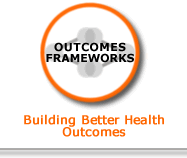 |
C.Evidence for workforce development, building capacity, availability and quality of services(Families model) |
Summary Scottish policy and guidance support specialist and generic workforce development to foster appropriate knowledge, skills and values related to substance misuse, needs and services.
Scottish policy and practice note Building capacity, availability and quality of support services for those affected by parental substance misuse is highlighted in the drugs strategy, The Road to Recovery (2008). The drugs strategy outlines actions to improve identification, assessment, recording and planning, and information sharing; to build the capacity, availability and quality of support services; and to strengthen the consistency and effectiveness of immediate risk management. The Getting Our Priorities Right (GOPR) guidance [1] highlights key elements of effective partnership working in strategic planning and leadership, as well as operational service design and management. The guidance states that ultimately, Alchol and Drug Partnerships (ADPs) are anchored in Community Planning Partnerships (CPPs) and are responsible for drawing up joint partnership-based strategies to tackle alcohol and/or drugs in their communities. They should ensure that community planning takes a coherent response to adult problem alcohol and/or drug use and the impacts on children. Supporting the development of Scotland’s Alcohol and Drug Workforce statement [2] sets out the aim of identifying all actions required to deliver the alcohol and drug workforce and to outline the important roles and contributions of those directly involved in workforce development. Staff in adult services should be trained to a level that matches what is expected of their role. This may include raising the issue of children and pregnancy with service users, ongoing assessment, identification of risks and unmet needs of children, liaison and referral with other agencies and services. The workforce involved with children and/or adults where problem drug use is a factor includes a broad range of practitioners: universal services, specialist and targeted services, clinical, residential and in-patient services. GOPR sets out a number of principles as the basis for joint Community Planning Partnership (CPP) and Alchol and Drug Partnership (ADP) workforce training programmes. The National Framework for Child Protection Learning and Development in Scotland [3] sets out a common set of skills and standards for workers to ensure the delivery of a consistently high standard of support to children and young people across the country. The Common Core of Skills, Knowledge and Understanding and Values for the Learning and development in the area of problematic alcohol and/or drug use is not an isolated activity and has to link to other learning and development strategies, for example local implementation of GIRFEC, child protection, The Sexual Health and Blood-Borne Virus Framework 2011–15, domestic abuse and mental health. The Children and Young People’s Act (2014) [5] makes provision about the rights of children and young people; to make provision about investigations by the Commissioner for Children and Young People in Scotland; to make provision for and about the provision of services and support for or in relation to children and young people; to make provision for an adoption register; to make provision about children’s hearings, detention in secure accommodation and consultation on certain proposals in relation to schools; and for connected purposes.
|
References:
|

